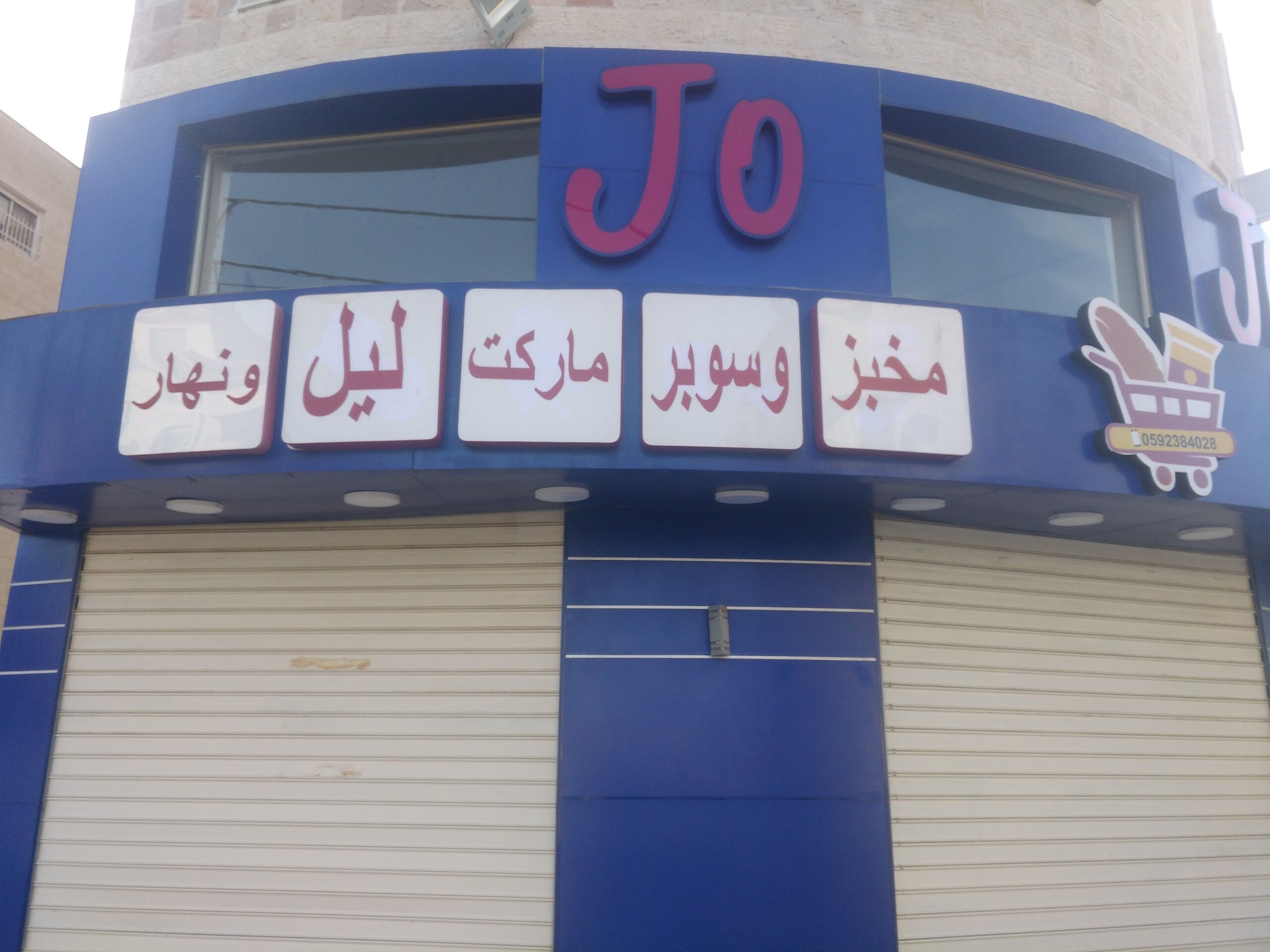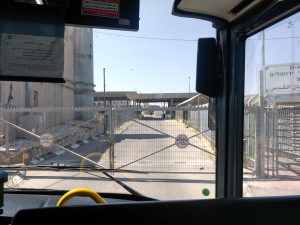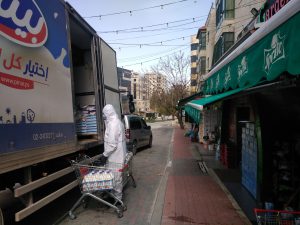‘Israel is obviously behind this,’ Osama said, speaking of the West Bank going under closure due to the coronavirus. ‘And maybe it’s for the best’
The corona virus infects people on an egalitarian basis. The Israeli military orders that create separate regimes for Israelis and Palestinians don’t apply to it. Meaning that the Israeli authorities genuinely want to prevent the virus from spreading among Palestinians, too.
That’s how I understood the March 5 declaration of emergency in the West Bank. All schools and daycares were closed for a month. Bethlehem was put under closure. Later they also closed the gateway to travel abroad, the Allenby Bridge, to foreigners and closed all cafes and restaurants in Ramallah.
“Israel is obviously behind this,” Osama said. “And maybe it’s for the best.”
I was also glad that samples from people who fell ill were being sent to Israeli laboratories for testing, and that the overwhelming Israeli military control over Palestinian civilians would, in this case, also focus on keeping people healthy. But I didn’t know how to interpret the difference between the response in Palestinian towns and the response in Israel and the settlements. I mean, was the closure of schools in Palestine an exaggerated response, of limited benefit, done only because Israel doesn’t care about the Palestinian economy? Or was there justification to close the schools in Israel, too, but no politician dared to do so during a period of forming a government or maybe preparing for another round of elections?
“We’ll set up a child care cooperative with other families,” I told Osama. I sent emails to mothers from Forat’s kindergarten, because as usual, women were expected to deal with the children.
On Sunday, March 8, the first day of our corona vacation, we went for a picnic on the side of the road between Ramallah and the village of Ein Qinya. It felt like spring. There were small thorny bushes, plenty of red and purple wildflowers, and seasonal agricultural structures that Osama called “castles”. Forat led me to one of them and explained in a serious tone: “They’re not clean, Ima, you have to hold me when I climb them, and Baba will stay with Adam.” People sat in the shade of fig and olive trees, roasted meat, smoked water pipes and ran after small children.
“At least they forced us to have a family vacation,” Osama said.
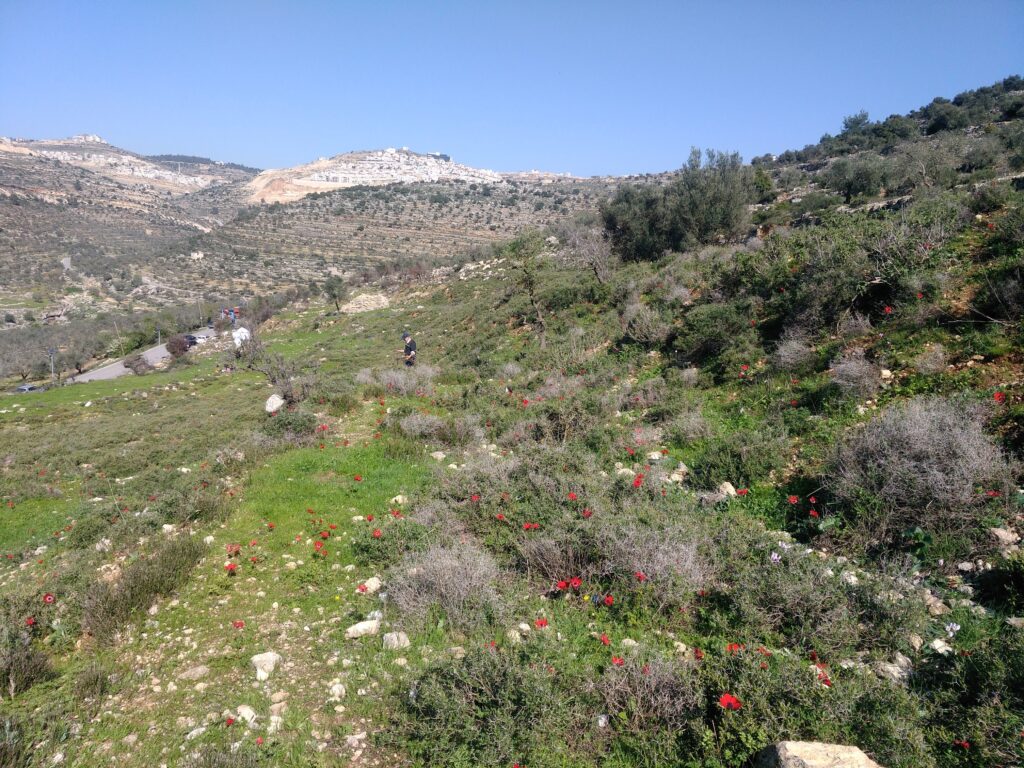
On Monday, the eve of the Jewish holiday of Purim, I began to feel the pressure of work building up. Sawsan, one of the mothers from the kindergarten, took our kids in the afternoon. We agreed I would take her kids the following morning. “Tomorrow is a Jewish holiday in which children dress up,” I told her. “Salah can come in a costume if he wants.”
At night, I prepared dough for hamantaschen, the traditional triangle-shaped Purim cookies. In the morning, Salah and his sister came, together with Yasmina, another friend from kindergarten, all dressed up as super-heroes. At least I managed to host a Purim party for Forat in Ramallah. The children washed their hands and rolled hamantaschen, or to be more precise, mushed the dough into balls and spread strawberry filling on it. I told them not to touch their faces, but their observance of my rule was very partial. Google promised that the corona virus can’t survive the heat of a 175 degree (Celsius) oven.
My corona playgroup was a success, and I tried to set up a child care schedule with Sawsan and other mothers.
“Bring Forat and Adam whenever you want,” they said with smiles. “And if I need anything, I’ll let you know.” My heart sank. I would have to give up on my fantasy of an efficient, orderly child care schedule that would let me plan work meetings. Most of the mothers had relatives living nearby, and some of them didn’t work outside their homes. But my family is in Israel and the United States, and Osama’s family lives in Gaza and is not allowed to come to the West Bank. His mother can’t even meet her grandchildren, let alone get a permit to come babysit them. We needed the other parents, but they didn’t need us.
Forat also had her own opinions about the child care cooperative.
“I don’t want to go to Khaled’s!” she said. “Let him come here.”
Even Osama’s and my attempt to share the burden met with partial success. All the libraries and cafes were closed. We had to work from home. And Forat and Adam only wanted to be with the parent who was supposed to be working.
“Biddosh Ima!” Adam yelled in his mixed-up two-year old Arabic. I don’t want Ima! “Biddi Baba!” I want Baba. And then he tried to break into the room where Osama was giving a class to his students by video.
I laughed when I got the e-mail from Forat’s kindergarten teacher, Miss Chantal, asking us to teach Forat lessons at home. In our spare time. In French.
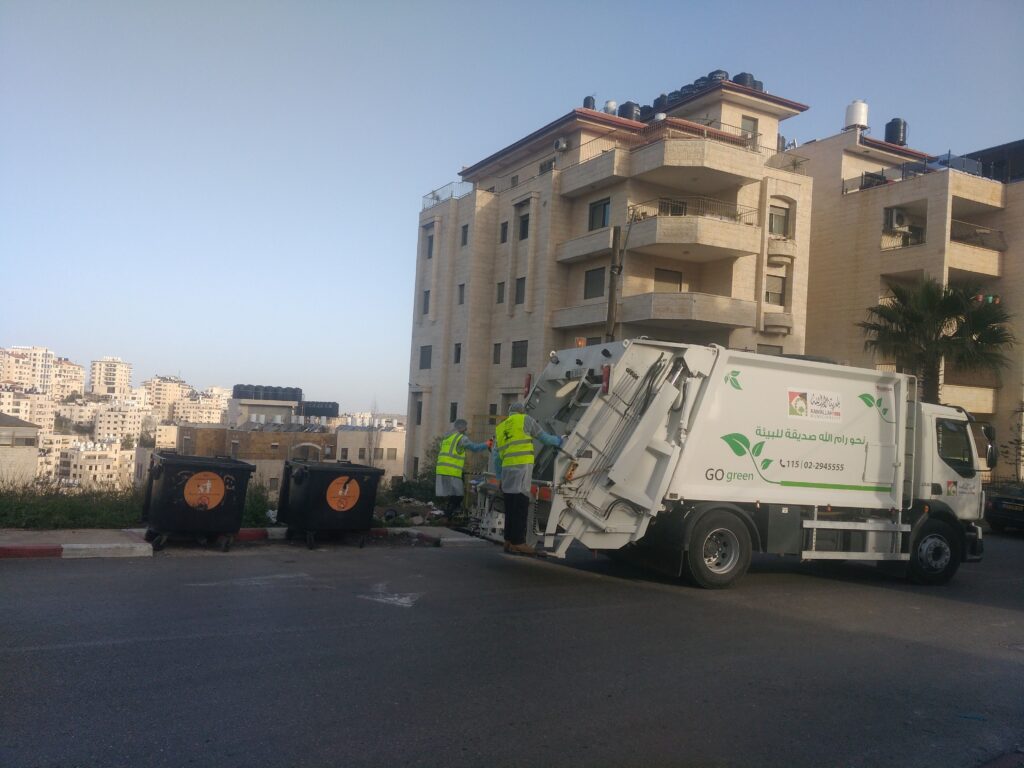
The streets of Ramallah had little traffic. Most of the buildings were closed, except for shops. The supermarkets were crowded, and the cashiers wore masks and gloves and offered customers a dose of hand sanitizer, a product that had long since disappeared from the shelves. At the supermarket, I met an acquaintance who teaches at the conservatory. We kissed with hesitancy and a certain amount of embarrassment. What are the social codes now?
“We were told to continue giving children private music lessons, but the teachers refused,” he told me. “They’re afraid.”
I came home. I tried to understand what was happening.
“Have there been reports of cases in Ramallah?” I asked Osama.
“No,” he said. “But no one trusts the authorities.” Then came the announcement that they would close the schools in Israel, too.
“This virus is really challenging the discriminatory regime here,” I told Osama. For once, equality between Israelis and Palestinians. Sort of. I wondered what people would do if the virus spread in the West Bank. How exactly would people enter quarantine in crowded refugee camps? At least the population here is young.
I closed the door to our home office and sat in front of the computer. Thirty seconds later the door opened, and Adam entered.
“Car!” he said in celebration, brandishing a blue toy car. And then to make sure I understood, he translated into Hebrew: “Oto!” He said on my lap and rolled three tiny cars over the computer keyboard. The zoom on the document I was editing jumped to 800 percent. I tried to fix it, but Adam pushed my hand away, because I was interfering with the car race he was refereeing on the touch pad.
I kissed his head and smelled the shampoo in his hair.
“Y’alla,” I told him and Forat. “Let’s play outside.”
This post was also published on haaretz.com on March 13, 2020:
